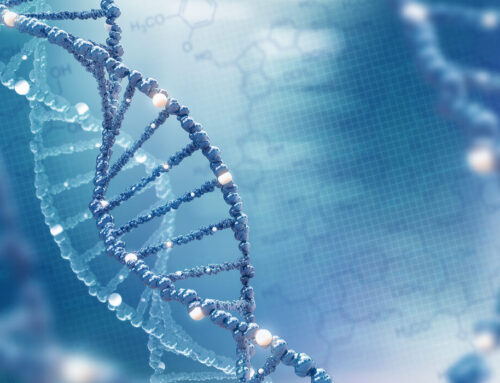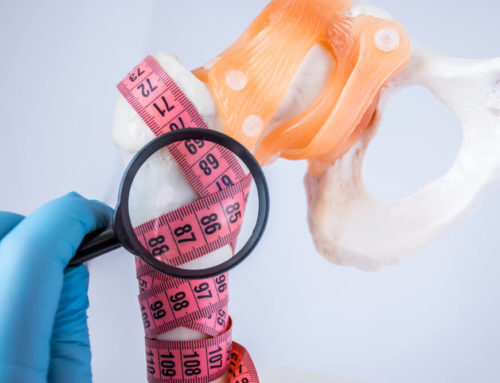It can be incredibly exciting when you and your partner are ready to bring a child into the world.
There are many things to plan, from thinking about if you’d like to move into a bigger home to having fertility testing done. One of the most important things you can do is take the time to complete prenatal genetic counseling. What does a genetic counselor do? What things can you learn through preconception counseling? Here’s what every future mom should know.
What Is Genetic Counseling?
Many women preparing to have children are concerned about potentially passing down conditions that run in their families or the risk of their children having a congenital disability. Wanting the best for your child is only natural, and genetic counseling is an effective way to learn more about the exact risks that are present.
Preconception counseling can give you information about specific conditions of concern and suggest ways to prepare, including testing, assisted reproduction, and more. Suppose you are already pregnant and discover that your baby has a genetic condition or congenital disability. In that case, you can also meet with a genetic therapist to ensure you are ready to support your baby.
The primary goal of prenatal genetic counseling is to equip you with information that allows you to make informed decisions about conception and childbirth. Understanding the tests and treatments available to you, it can give you peace of mind that everything will be alright.
What Does a Genetic Counselor Do?

A genetic therapist is a highly trained and compassionate medical professional who understands genetics. They have in-depth knowledge of many genetic medical conditions and how they can be passed through families. What does a genetic counselor do before conception? A counselor will typically meet with couples to sketch out a detailed family history, suggest relevant testing, interpret test results, and provide support to help patients make informed decisions.
What does a genetic counselor do for pregnant mothers? Some patients complete genetic counseling after they are already pregnant, which is completely fine. If you are pregnant, a genetic therapist can help perform testing to determine if any signs of congenital disabilities or genetic conditions are present in the fetus. Preconception counseling and prenatal counseling give you time to prepare to support your new baby once you give birth.
What Are the Benefits of Prenatal Genetic Counseling?
Preconception counseling is beneficial for couples throughout the world every year as they prepare to have a child. Learning that your child will be at an increased risk of a genetic condition can be challenging, but it allows you to make educated decisions and adapt your plans accordingly.
One of the other benefits of prenatal genetic counseling is acting proactively instead of reactively to mitigate risk. Many conditions can be tested for early in pregnancy or prevented, but you won’t be able to take those steps without knowing you are at risk. There are many innovative fetal therapies that can lead to excellent outcomes.
When you become pregnant, you will also have access to more specialized care based on your risk factors. A care team including fetal specialists, neonatal surgeons, genetic counselors, imaging specialists, and pediatricians can help ensure that your pregnancy and birth are as comfortable as possible. What does a genetic counselor do with a care team? These professionals will all help secure a wonderful life for your new infant.
Who Should Get Preconception Counseling?
Scheduling an appointment for genetic counseling could be beneficial if any of the following applies to you:
- You are 35, or older or the father will be 40, or older.
- You or your partner have completed genetic carrier screening or genetic counseling in the past that indicated an increased risk for genetic disorders.
- You, your partner, a family member on either side, or one or more of your current children have a congenital disability, genetic disorder, or intellectual disability.
- You have a history of stillbirth, miscarriages, or infertility.
- You are related to your partner (first cousin, second cousin, etc.).
- You have been through chemotherapy treatment.
- You have a medical condition that could compromise your ability to complete a pregnancy, like diabetes.
- You have been exposed to chemicals, radiation, or drugs in the past.
- Your ethnic background carries a high risk for conditions like sickle cell anemia.
If you are already pregnant, you might also be a good fit for prenatal genetic counseling from a genetic therapist if:
- Ultrasounds indicate potential birth defects.
- You have used drugs or alcohol during your pregnancy
- Prenatal testing like amniocentesis suggesting the presence of a genetic disorder
- You have had an infection during your pregnancy
The knowledge that you receive during the testing process is invaluable as you prepare to make decisions about how to raise your child. Genetic counselors are here to support you with information and a compassionate ear.
What Are the Most Common Genetic and Chromosomal Conditions in Infants?
There are many different chromosomal and genetic conditions that can be tested ahead of pregnancy or during pregnancy. Some of the most common conditions found in infants include:
- Cystic fibrosis
- Thalassemia
- Spinal muscular atrophy
- Fragile X syndrome
- Tay Sachs disease
- Sickle cell disease
Which Types of Prenatal Testing Can Be Completed?
Your genetic counselor can suggest a variety of tests to learn more about your genetics or your current fetus. Carrier screening detects genetic mutations that you or your partner might be carrying, like sickle cell disease. Screening tests can use your blood and family history to give you more information about your baby’s risk of having a genetic disorder, birth defect, or chromosomal abnormality.
What Happens if Your Baby Might Have a Birth Defect or Genetic Disorder?

Genetic counselors work with mothers just like you as they process tough decisions and explore alternatives that mitigate risk. We are here to offer guidance and support throughout each phase of your life, whether you are preparing to have a child or already pregnant and preparing to give birth. Your counselor will be able to answer questions that you might have and pose questions that help you think critically.
The genetic counselor advising you and your partner will never steer you in a specific direction or towards a certain decision. Instead, they want to make you as educated as possible. Prenatal testing is not designed to lead to one outcome. Instead, it’s to help couples be ready for any potential results of pregnancy.
Are You Ready to Plan for Pregnancy Through Testing and Counseling? Contact Dr. TaiSenChoy-Bent to Work With an Experienced Genetic Counselor
Planning for pregnancy is an overwhelming process for many couples, and one of the most important things you can do to ensure your infant’s health is working with a genetic counselor. Dr. TaiSenChoy-Bent has years of experience counseling couples who want to learn more about how their family history and personal health history could impact their child.
By understanding the risk of birth defects or genetic conditions, you will be able to plan ahead and receive the best maternity care possible. Schedule your appointment with our genetic counselor now by calling our office at 1-954-796-0111. We provide genetic therapy and testing services in the Margate, Parkland, Coral Springs, Coconut Creek, and Boca Raton, FL area. We are proud to be the trusted, compassionate genetic therapy destination of many Florida couples.










